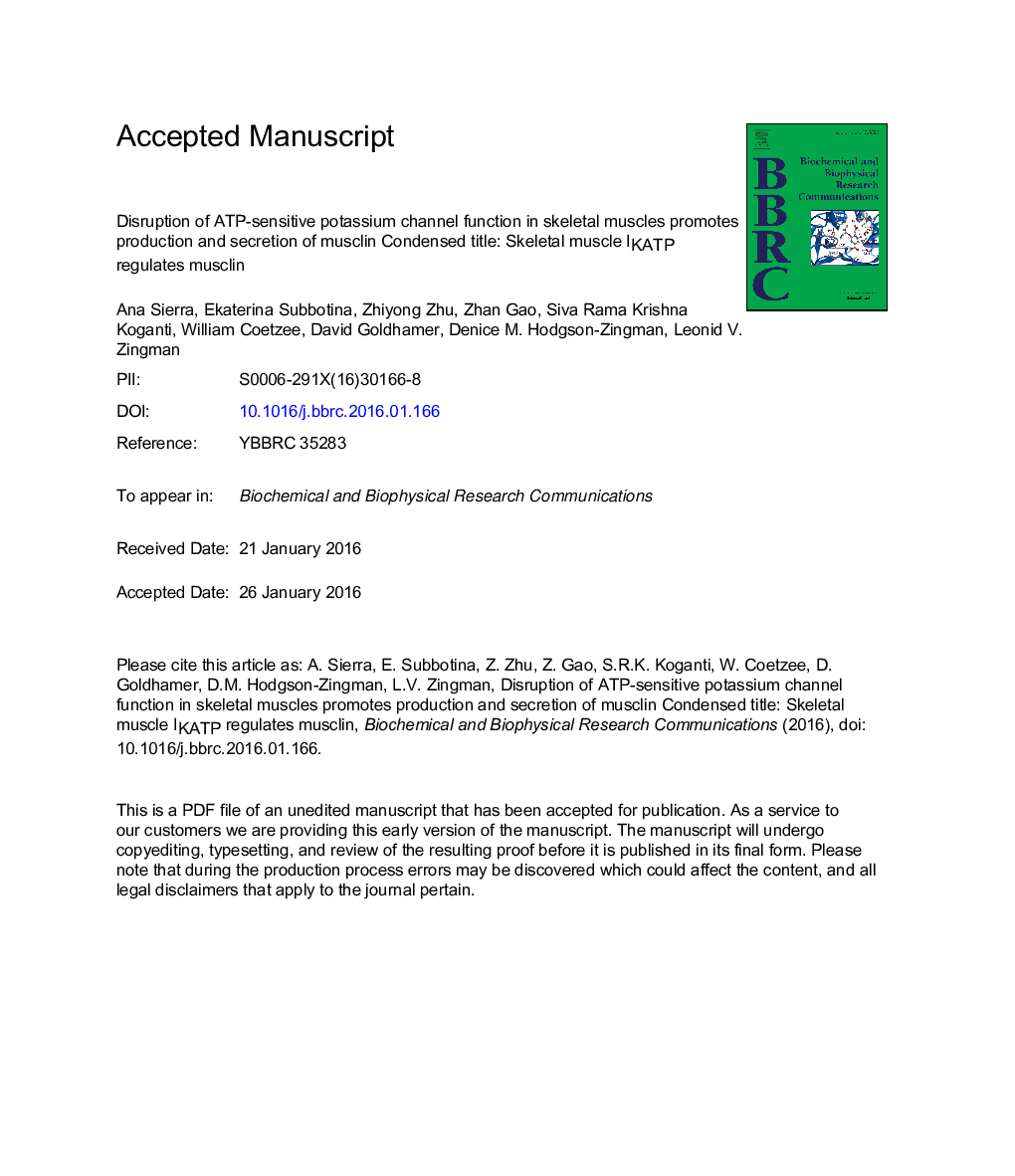| Article ID | Journal | Published Year | Pages | File Type |
|---|---|---|---|---|
| 10748802 | Biochemical and Biophysical Research Communications | 2016 | 23 Pages |
Abstract
Sarcolemmal ATP-sensitive potassium (KATP) channels control skeletal muscle energy use through their ability to adjust membrane excitability and related cell functions in accordance with cellular metabolic status. Mice with disrupted skeletal muscle KATP channels exhibit reduced adipocyte size and increased fatty acid release into the circulation. As yet, the molecular mechanisms underlying this link between skeletal muscle KATP channel function and adipose mobilization have not been established. Here, we demonstrate that skeletal muscle-specific disruption of KATP channel function in transgenic (TG) mice promotes production and secretion of musclin. Musclin is a myokine with high homology to atrial natriuretic peptide (ANP) that enhances ANP signaling by competing for elimination. Augmented musclin production in TG mice is driven by a molecular cascade resulting in enhanced acetylation and nuclear exclusion of the transcription factor forkhead box O1 (FOXO1) - an inhibitor of transcription of the musclin encoding gene. Musclin production/secretion in TG is paired with increased mobilization of fatty acids and a clear trend toward increased circulating ANP, an activator of lipolysis. These data establish KATP channel-dependent musclin production as a potential mechanistic link coupling “local” skeletal muscle energy consumption with mobilization of bodily resources from fat. Understanding such mechanisms is an important step toward designing interventions to manage metabolic disorders including those related to excess body fat and associated co-morbidities.
Keywords
CaMKIIIKATPTBPANPNEFANPRGFPGAPDHFOXO1KATPHDACATP-sensitive potassiumAdenosine TriphosphateATPAktFatty acidnon-esterified fatty acidsEnduranceTransgenicwild-typehistone deacetylaseaction potentialGreen fluorescence proteinTATA-binding proteinprotein kinase Bcalcium/calmodulin-dependent protein kinase IINatriuretic peptideatrial natriuretic peptideCalciumglyceraldehyde-3-phosphate dehydrogenasenatriuretic peptide receptor
Related Topics
Life Sciences
Biochemistry, Genetics and Molecular Biology
Biochemistry
Authors
Ana Sierra, Ekaterina Subbotina, Zhiyong Zhu, Zhan Gao, Siva Rama Krishna Koganti, William A. Coetzee, David J. Goldhamer, Denice M. Hodgson-Zingman, Leonid V. Zingman,
